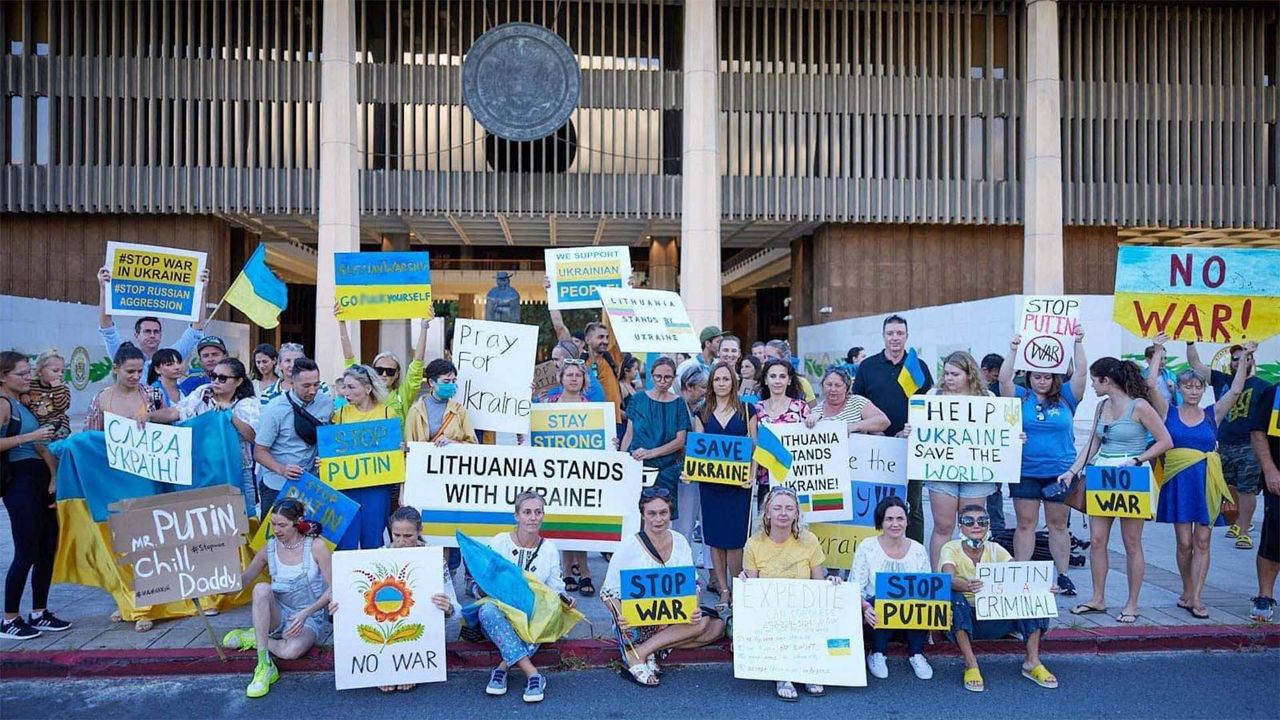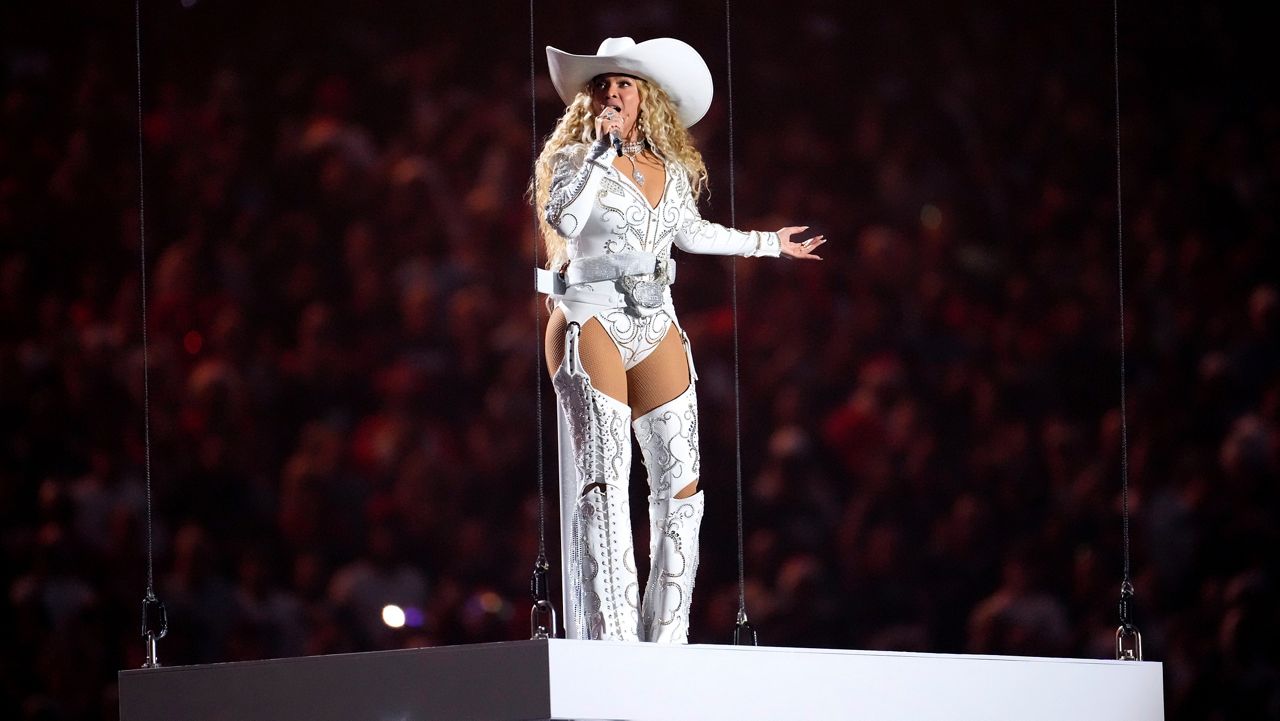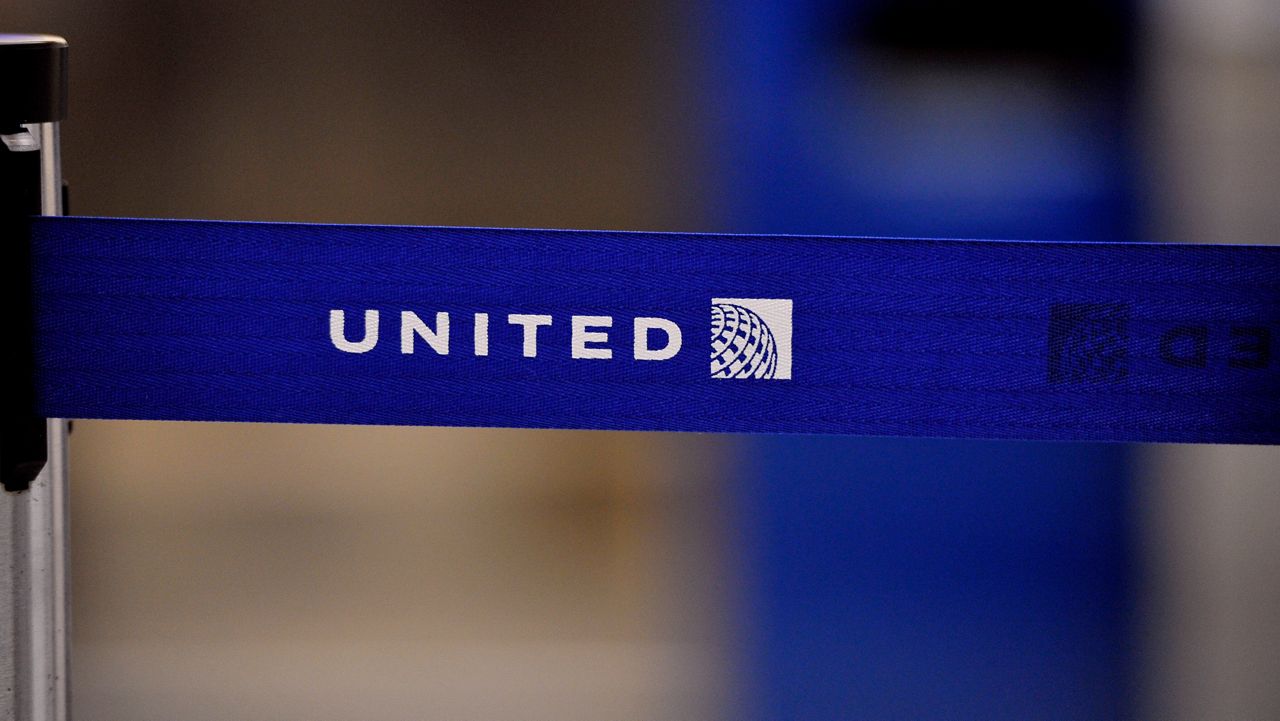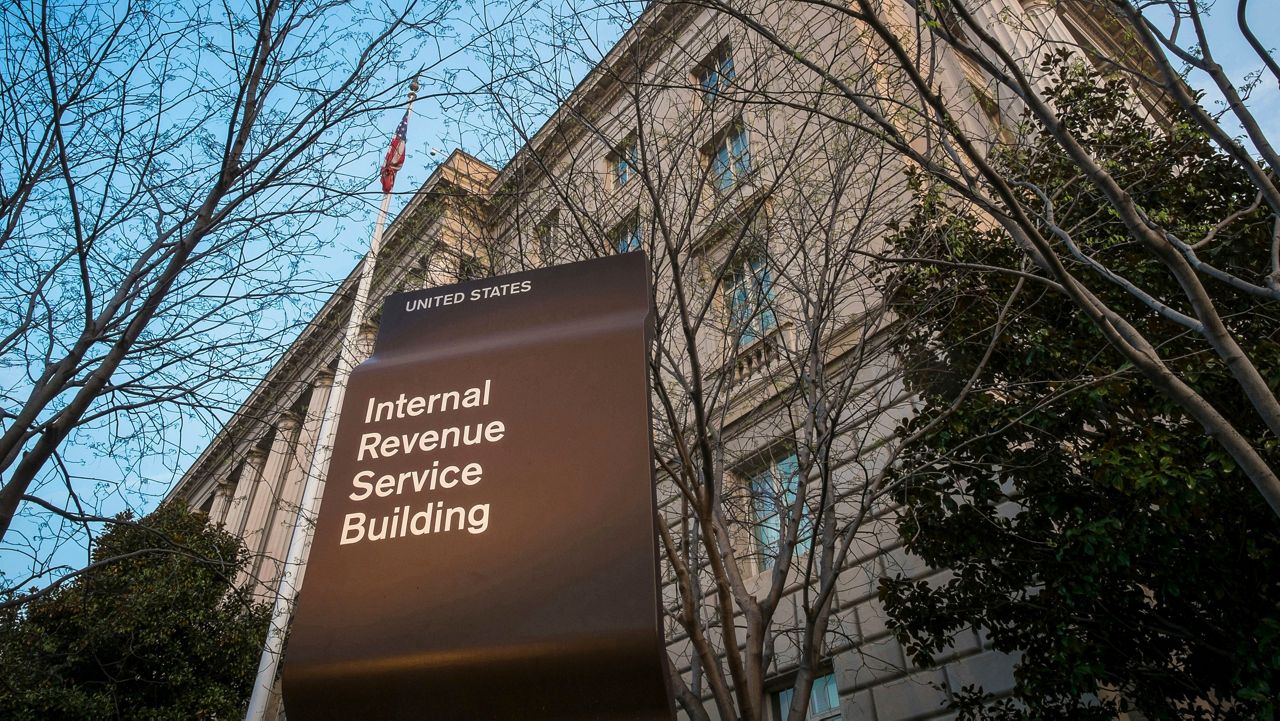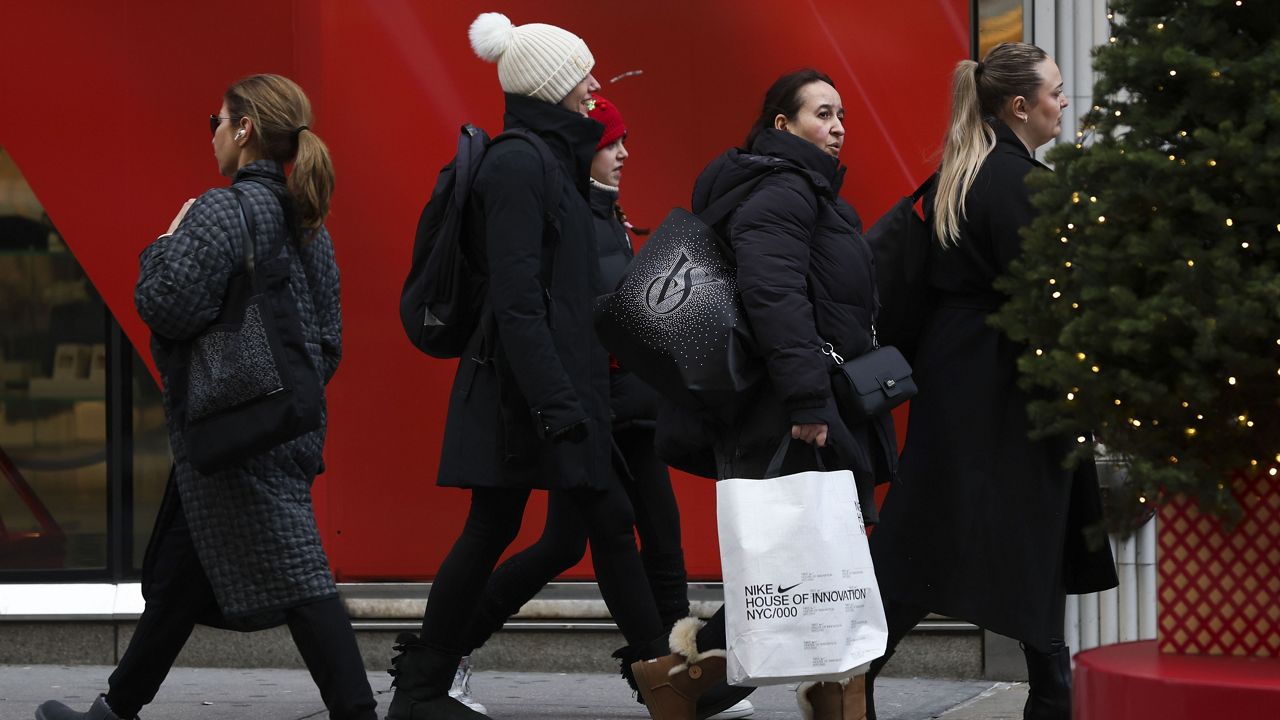This is the first part in a series of interviews with Ukrainians who call Hawaii home. Read the second part, third part and fourth part in the series.
HONOLULU — Four Ukrainians who live in Hawaii spoke to Spectrum News Hawaii about what it has been like watching Russia launch a military attack in their home country. Since the war started on Feb. 24, they all said they have felt a range of emotions from disbelief, shock, extreme sadness, stress, fear, guilt about being away from their home country, and pride for the way Ukrainians and the country's President Volodymyr Zelenskyy have stood up to the Russian invasion.
While for many in Hawaii, Ukraine feels like it’s on the other side of the world — it literally is a 12-hour time difference — Jairus Grove, a political science professor at the University of Hawaii at Manoa said it is important to acknowledge that Hawaii does have a Ukrainian community, which includes graduate students at the university.
Grove said a Ukrainian graduate student flew back to his home country shortly before the war started to get his wife and six-month-old out safely but is now stuck and unable to fly out.
“It's tragic to not be able to hear from students, and we don't know if they're safe,” said Grove.
He also said that people in Hawaii who aren’t from Ukraine do care about what’s happening, whether they are an anti-war activist or a member of the U.S. military.
He also encouraged those who might feel Ukraine is far away to take the time to engage, as everyone's participation is important for a flourishing democracy.
“Even people who've been disengaged from international relations and world news in the past, because we thought that somehow we are too far away for it to matter, it's time to re-engage,” said Grove. “It's time for people to start voicing their opinions on those things.”
“That’s what makes us different than Russia … our foreign policy is shaped by our discourse and our elections and who represents us,” Grove added.
Elena Roud grew up in Dnipro in Ukraine, moving with her husband to the United States in 1993 when she was 25-years-old. For a year, she lived in Connecticut, before moving to Oahu, where she has now lived for 30 years.
Dnipro is Ukraine’s fourth largest city, with a population of about 1 million, and it is in central Ukraine. For now, she is less worried about her hometown than other parts of Ukraine because the cities that are getting heavily shelled are closer to the borders. In an interview with Spectrum News Hawaii, she called the war “very scary” and said she was concerned Russian President Vladimir Putin would use nuclear weapons to attack Ukraine.
Grove, the UH professor, described Putin using nuclear weapons as a credible fear.
“Anyone who's willing to threaten the use of nuclear weapons … is something we should take very seriously because even a very small risk of even a limited use of nuclear weapons is a catastrophic event, which would have impact … on the decisions for other states to use small nuclear weapons,” said Grove. “Hawaii should take [the threat] very seriously. I think Hawaii woke up a bit to the fact that we still live in a nuclear world after the false missile alert.”
“The reality is that there are more nuclear weapons in the world today than there were during the height of the Cold War, and they're possessed by more states,” Grove added.
Roud is a real estate agent and her two daughters — 24- and 34 years old — grew up in Hawaii, speaking both Russian and English. In Hawaii, Roud has regularly met with a Russian-speaking group for many years.
“Even though I'm from Ukraine, I grew up in Soviet Union,” said Roud. “I did not learn Ukrainian language at all.”
She said the country has changed significantly since she left.
“New generation, they grew up with the Ukrainian language and that was the norm for them,” said Roud. “People in Ukraine, they have pride, and they want people to know that they actually acknowledge Ukraine as an independent country. And they want Putin to respect that too.”
Roud says she has taken her daughters to visit Ukraine many times throughout their lives.
“They love Ukraine and they were so proud to have this affiliation with the culture in the country,” said Roud. “They feel Ukrainian because they totally get this culture.”
Roud compared Ukraine to Hawaii, saying people are welcoming, always share their food, and have a happy state of mind.
“People in Ukraine were happy, and here this war comes around absolutely as a surprise,” said Roud. “People in Ukraine were happy, and here this war comes around absolutely as a surprise,” said Roud.
She said she had thought Russia’s military buildup around Ukraine was just a way to scare Americans, and she even bought tickets to visit Ukraine two weeks before the invasion started.
“I told my kids ‘I don't believe it. I'm going to Ukraine. I will be there. It's not gonna happen,’” she said.
Now that the war has started, Roud said it looks like Putin wants to put the Soviet Union back together.
“It feels totally ridiculous because he (is) just not recognizing that people treat him as a dictator,” said Roud. “He made a lot of bad things happen for the past eight years [since invading Crimea in 2014]. Why (did) he get this idea that people would just surrender?”
She said that Ukrainians are not fighting against Russians. Instead, they are fighting against Putin’s dictatorship and for democracy.
Grove, the professor, questioned whether calling Putin a dictator is sufficient, because his ideology may be worse as it includes fighting foreign wars in order to reestablish respect but agreed that Russia is “nothing near what we think of a democracy.”
“He is an authoritarian cult of personality with one of the world's largest and most sophisticated military, who is tenuring his continued power on the ability for Russia to reclaim what they feel was stolen, and that's a unique intersection of authoritarian governance,” said Grove.
Roud said it has given her an “enormous sense of pride” to see how her country and Ukraine’s president were responding to Russia’s invasion.
“He could run away if he would be a coward. He stand up and showed an example,” said Roud.
Roud said her parents, mother-in-law, sister-in-law and aunt live in Dnipro.
“We didn't sleep for four days. We were always in touch with our family,” said Roud after learning Russia was attacking Ukraine.
Since moving to Hawaii, she has also stayed in contact with many of her high school friends, who now live in different cities and towns throughout Ukraine. Roud said she calls them every few hours, providing updates about what she has learned from spending her time following the news.
“It doesn't feel good. People stay in [bomb] shelters, and they're scared,” said Roud, who explained that Ukraine’s siren system has different sounds that correspond to different impending munitions, which let people know where to go to best protect themselves. “They had to learn to recognize … how different weapon will sound … It's scary to have this kind of lesson.”
While she believed Ukraine is “fighting a good fight,” she said her country will need help to stop the war Putin started.
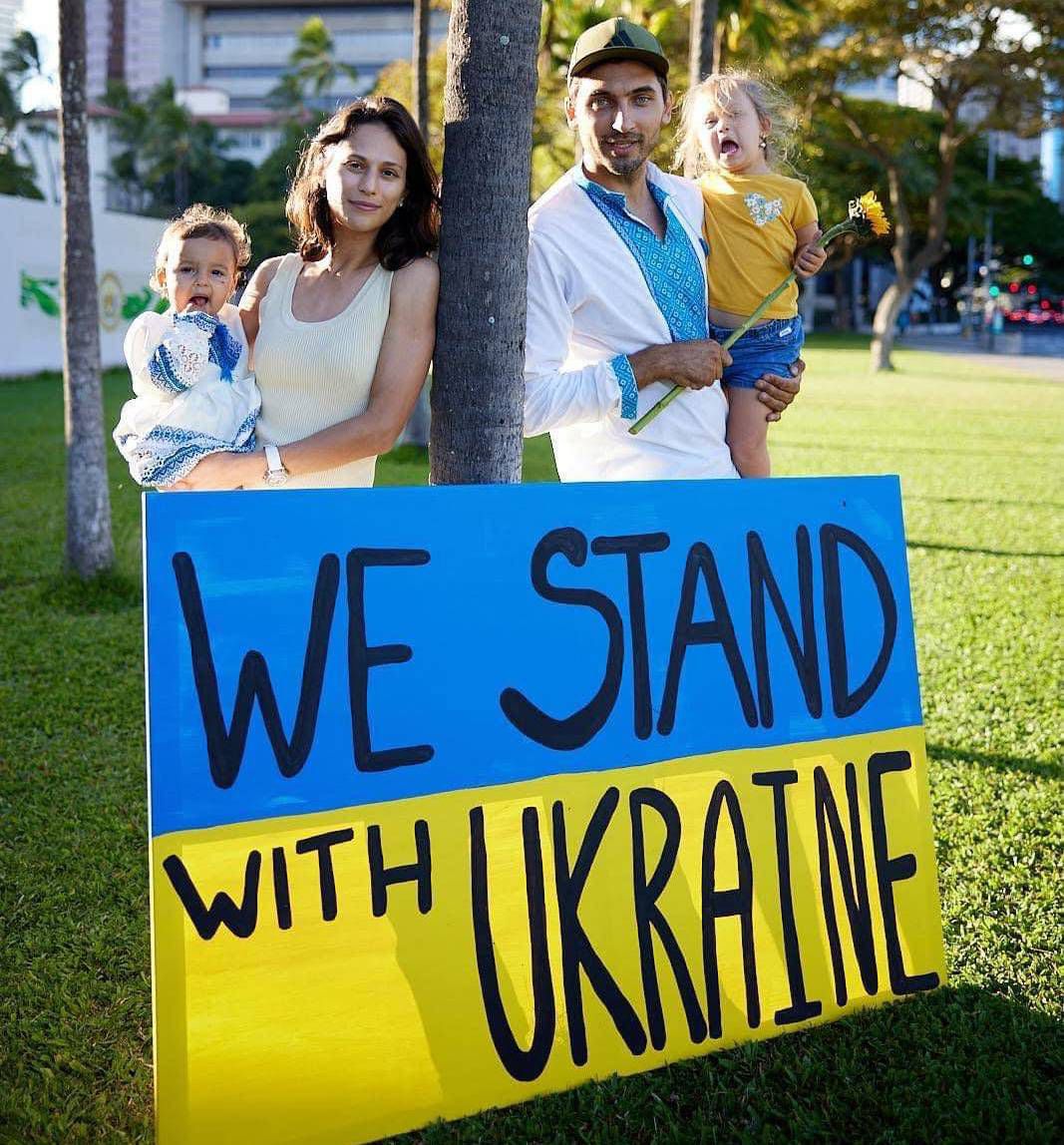
In reaction, Roud, with the help of others who are invested in supporting Ukraine, organized rallies, which will now be held every week on Friday at 4 p.m. at the Hawaii State Capitol and Sunday at Ala Moana Beach Park at 10 a.m. until the war ends.
Roud encouraged anyone who wants to help to join the new Facebook group “Hawaii We Stand With Ukraine” to attend the rallies and to donate to Ukraine. In particular, she mentioned a nonprofit organization, Razom, that accepts donations for Ukraine and delivers them across the Ukrainian-Polish border.
“We try to spread awareness. We try to because there are a lot of destruction already in Ukraine,” said Roud. “If you stop war today … it's enough pain and suffering for people for years.”




